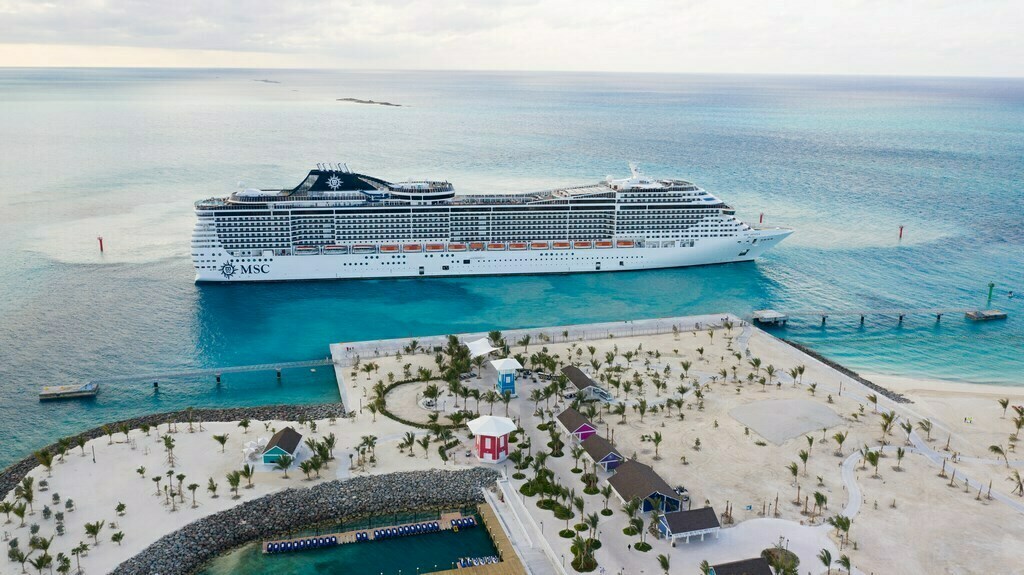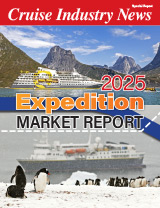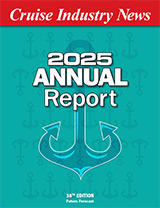The MSC Foundation has announced the signing of agreements with the University of Miami Rosenstiel School of Marine and Atmospheric Science and Nova Southeastern University in Florida to “finalize the terms of a graduate internship program that will support its Super Coral Program research and development activities in 2021 both on site at the Ocean Cay Marine Reserve in the Bahamas and virtually.”
According to a press release, the signing marks the start of the implementation phase of the program that the MSC Foundation conceived together with a panel of experts as its own urgent response to the emergency of coral reefs approaching imminent extinction due to climate change and pollution.
“This partnership marks an important step forward in our commitment to implement a marine conservation program to reverse the steep decline of coral reefs around the globe, which threatens a quarter of all marine life. The ocean is in our DNA, which is why the Super Coral program is more than a local initiative to protect and restore the coral reefs around Ocean Cay and Florida. It is designed to build unique expertise in the study and practice of coral resilience, developing a model that can be successfully replicated around the world,” said Chair of the MSC Group’s MSC Foundation Executive Committee, Pierfrancesco Vago.
Coral reefs are among the most diverse ecosystems in the world, serve as a food and economic resource for half a billion people and protect coastal communities from storms and erosion, MSC said. According to the UN’s Intergovernmental Panel on Climate Change, scientists predict that 70-90 percent of coral reefs are in danger of dying out between 2030 and 2050.
“We are constantly bombarded with warnings about the demise of coral reefs around the world, and rightly so, it’s absolutely true they’re being obliterated. There is an urgent need to act to stop further harm being done and to accelerate our efforts to find solutions to reverse the global trend of reef loss. There are not many cases where you can say there is a real opportunity to do exactly this, so here we have a real window of hope. Initiating large scale collaborative projects that seek to provide real solutions now, represents our best chance of securing a future for coral reefs and the livelihoods of the millions of people who depend on them,” said David Smith, professor of Marine Biology at The University of Essex in the UK and chief scientific advisor on the MSC Foundation Advisory Board for the Super Coral Program.
The program aims to “research, develop, test and refine methods to reverse the decline in coral reefs in the 64-square-mile marine reserve around Ocean Cay, pioneering the rebuilding of damaged coral reefs with coral species that are more resilient to environmental threats like ocean pollution and warming.” These studies are the work in which the University of Miami Rosenstiel School and Nova Southeastern University scientists will be directly involved, MSC said.
“The MSC Super Coral Programme seeks to help restore coral reefs in The Bahamas’ to a healthy state through actively selecting for climate change resistant genotypes and enhancing sexual propagation of those genotypes,” explained Professor of the Department of Marine Biology and Ecology at the University of Miami Rosenstiel School of Marine and Atmospheric Science, Chris Langdon.
Joana Figueiredo Ph.D. at Nova Southeastern University said: “MS Marine Biology students from Nova Southeastern university have an outstanding opportunity for research internships at Ocean Cay, Bahamas, funded by the MSC Foundation. They will help set up a coral nursery to propagate corals, study the marine life of the marine reserve around the island, and interact with guests to inform them about coral reef protection.”
According to the press release, the goals of the Super Coral Program are to “restore the coral reefs around Ocean Cay so they become more resistant to environmental change, pioneer the use of hardy Super Coral species and varieties to increase the resilience of the reefs, develop and share a scalable replicable model to advance scientific understanding and promote thriving coral and marine restoration worldwide, promote public awareness of and action in support of marine conservation and coral reef restoration.”




